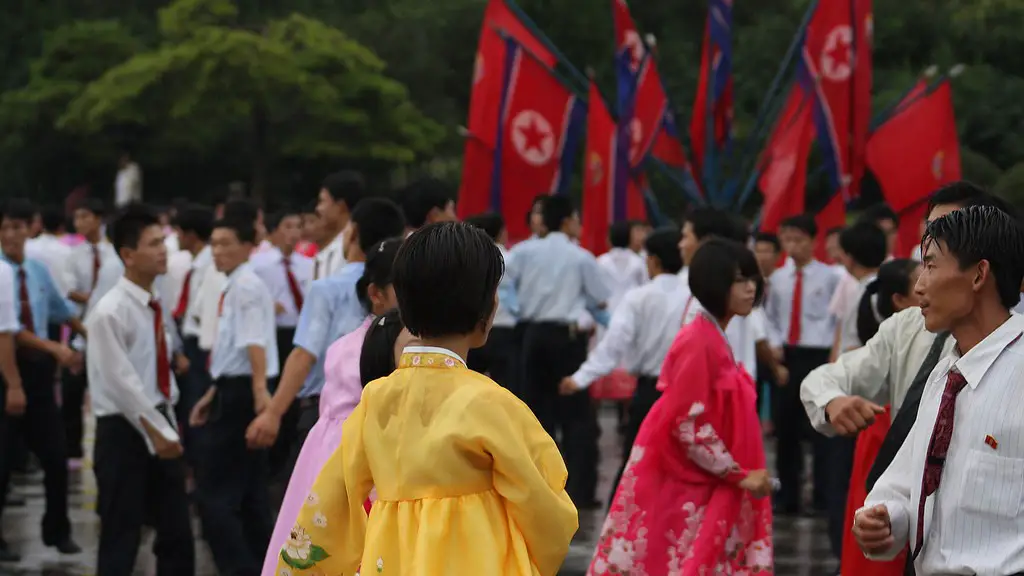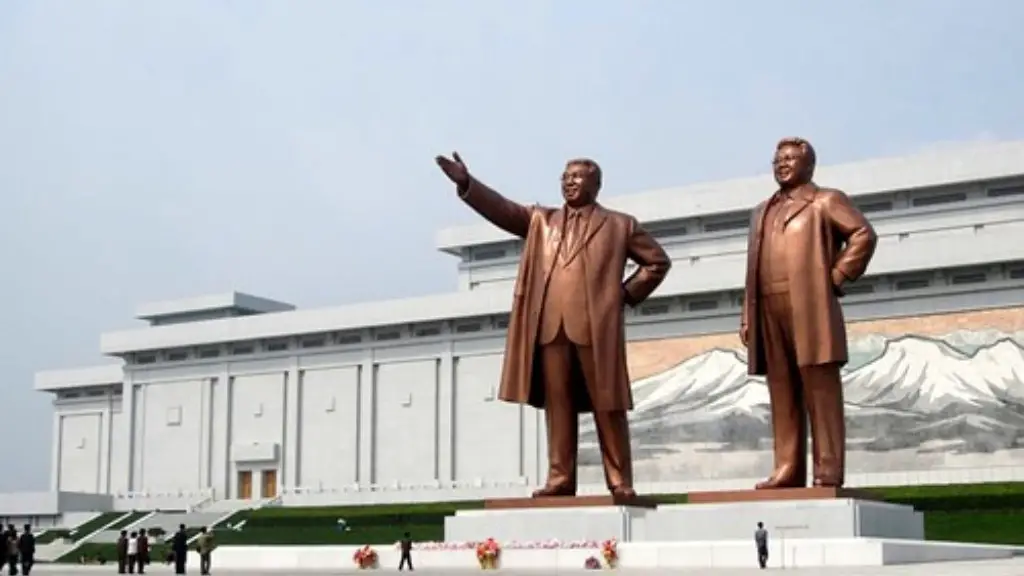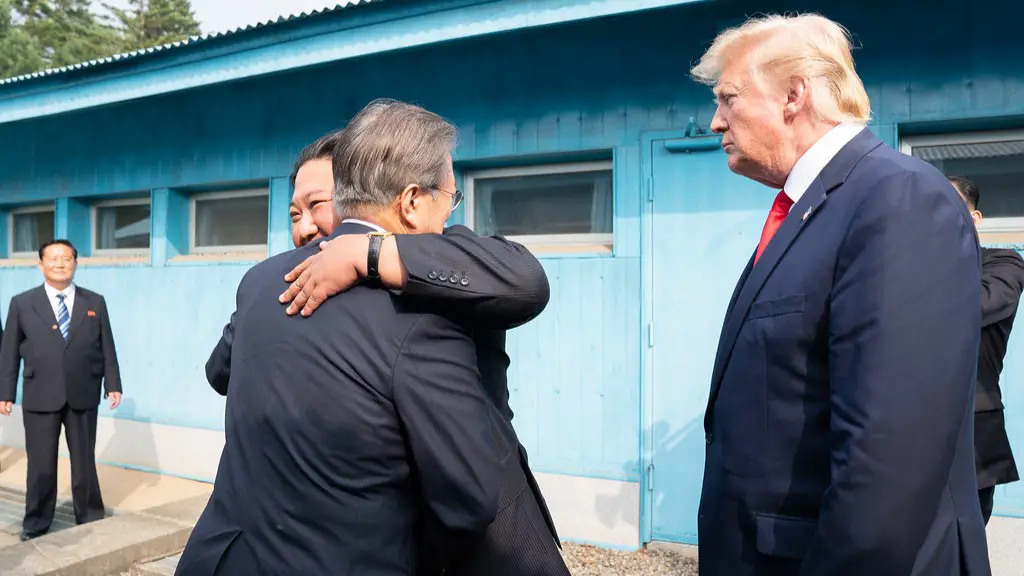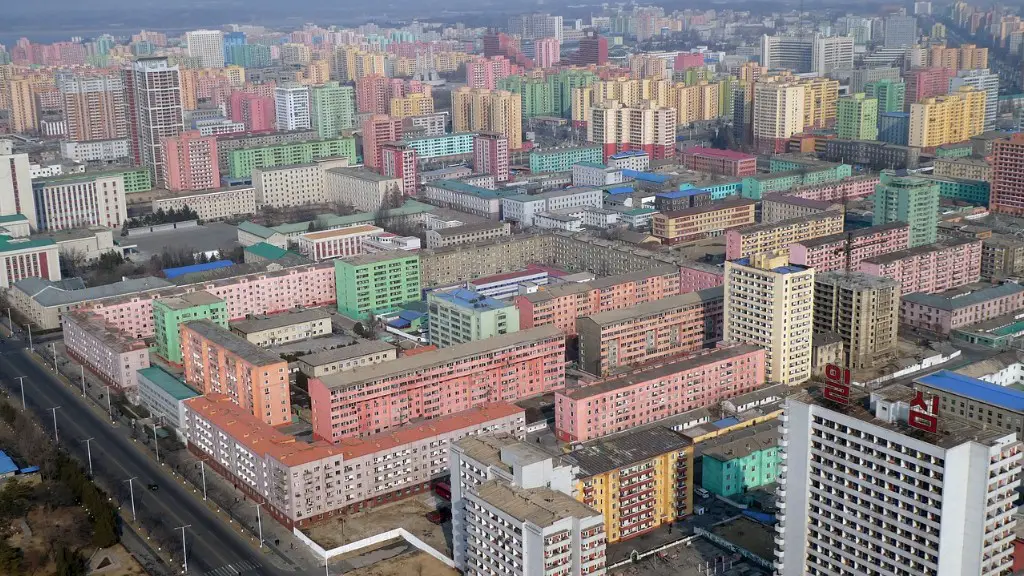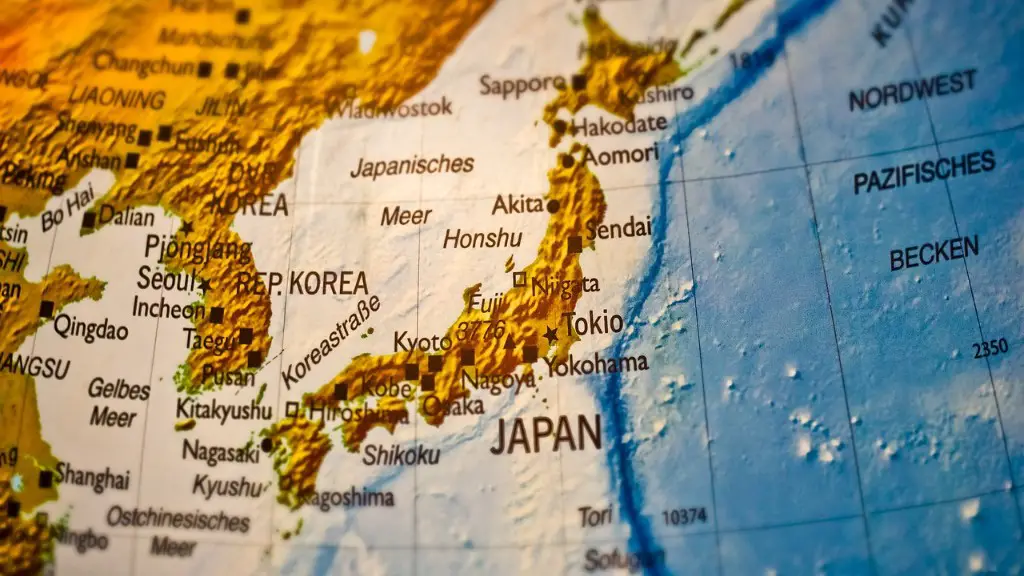Since 1945, North Korea has stood apart from the international community, a mysterious one-party state in a nuclear standoff with the United States. Its juche ideology of maintaining complete control over the state and its military-first policy has kept it under the watchful eye of the United Nations for over seven decades.
In recent years, the United States has stepped up its efforts to bring North Korea to the negotiating table, imposing economic sanctions in an effort to rein in its nuclear ambitions. These sanctions have had a drastic effect on the North Korean people, with the UN estimating that over 10 million people in the country are in need of humanitarian assistance.
For decades, the US has attempted to halt North Korea’s nuclear development by offering economic incentives, such as promising economic aid in exchange for denuclearizing. However, the US has been unable to prevent the North Korean regime from continuing to pursue its nuclear ambitions, despite continual international efforts and condemnation.
In response to North Korea’s further development of its nuclear program, the US imposed a series of harsh economic sanctions in 2017. These sanctions were aimed at crippling North Korea’s economy in order to dissuade it from further development of its nuclear capabilities. The sanctions banned North Korean exports, froze North Korean assets abroad, and dramatically reduced North Korean access to the international financial system.
The US sanctions have had a drastic impact on the lives of North Korean citizens, reducing the availability of basic food items, medicines, and other vital goods, while dramatically increasing prices. The US government has maintained that these sanctions are meant to be targeted and proportional, designed to pressure the North Korean government without affecting the daily lives of ordinary citizens. However, reports of starvation, impoverishment, and deteriorating living standards indicate that the majority of the economic and social consequences of the sanctions have been borne by ordinary North Koreans.
Despite the disastrous effects of the sanctions, many experts believe that they are necessary to deter North Korea from pursuing nuclear weapons. The US government sees the sanctions as an effective means of pushing North Korea to the negotiating table and a way of convincing the North Korean officials to relinquish their nuclear ambitions. But it remains to be seen whether the sanctions will successfully bring North Korea to the bargaining table, or further exacerbate the country’s economic and humanitarian crisis.
The Effects of Sanctions on North Korea’s Economy
The US sanctions have had a dramatic impact on the North Korean economy, with food shortages, rampant inflation, and the virtual collapse of the country’s export sector. The exports of coal and iron ore, which have been some of North Korea’s main sources of income, have been heavily restricted, leading to a major decrease in revenue. Many of North Korea’s other exports, such as seafood, garments, and textiles, have been significantly reduced or outright banned.
The North Korean economy has also been crippled by the restrictions on its access to the international banking system. North Korea has been unable to transfer money overseas, preventing it from obtaining hard currency and stalling its economy. North Korean companies have been unable to engage in international trade, reducing their ability to obtain goods and services, both for the state and for the population as a whole.
Additionally, the sanctions have caused a steep rise in food prices, which has had a devastating effect on the country’s population. Inflation has risen sharply, with prices of key food items such as rice and corn more than doubling since 2017. This has resulted in widespread hunger and malnutrition, leading to the UN declaring in 2019 that over 10 million people in North Korea are in need of urgent humanitarian assistance.
Criticisms of US Sanctions on North Korea
The US sanctions on North Korea have been widely criticized by human rights organizations and experts. Human Rights Watch has accused the US of deliberately targeting the North Korean people in its sanctions, pointing out that the majority of the population has been made to bear the brunt of the economic restrictions. It has also argued that the sanctions have disproportionately targeted the poor and vulnerable, indicating that their effects are far from “targeted” and “proportional”, as the US government claims.
Additionally, the US has been accused of ignoring the humanitarian implications of its sanctions. Humanitarian organizations have warned that North Korea’s population is on the brink of a humanitarian disaster, with millions of people facing malnutrition and starvation. The UN has called on the US to lift the sanctions on food, medicine, and other essential goods, but the US has refused to do so, claiming that this would lessen the pressure on the North Korean government.
The Future of US-North Korea Relations
It remains to be seen whether the US sanctions will be successful in persuading North Korea to abandon its nuclear ambitions, or whether they will have further disastrous effects on the country’s people and economy. In recent months, tentative negotiations have resumed between the US and North Korea in an effort to end the stalemate. But with so much at stake, and with the challenges ahead still unclear, only time will tell if the two sides will be able to reach an agreement before it’s too late.
How Sanctions May Impact North Korea’s Political Situation
The sanctions imposed by the US have had an undeniable effect on the North Korean political situation. The North Korean government has warned that it will never surrender its nuclear arsenal, and that it will intensify its nuclear and missile programs if the sanctions are not lifted. This has further strained relations between the US and North Korea, and has hindered diplomatic efforts to resolve the crisis.
The US sanctions have also been a major source of alienation for North Korea’s leaders. The sanctions have had the effect of isolating North Korea from the rest of the world, leading to a further tightening of domestic controls and the suppression of any dissenting voices. This has made it nearly impossible for North Korean citizens to peacefully criticise the government without fear of retribution.
Additionally, the sanctions have had a detrimental effect on the economy, causing widespread unemployment, poverty, and food shortages. This has created a deep sense of discontent among the North Korean population and has emboldened anti-government sentiment, fuelling the potential for popular unrest.
Impact of Sanctions on North Korea’s Humanitarian Situation
The US sanctions have had a devastating effect on the humanitarian situation in North Korea, with the UN estimating that over 10 million people in the country are in need of urgent assistance. The sanctions have had a drastic impact on the availability of basic food items, medicines, and other essential goods, leading to widespread malnutrition, poverty, and deprivation.
The sanctions have also prevented North Korea from receiving vital humanitarian aid from the UN and other international organizations. In 2019, the UN launched a major appeal for humanitarian assistance for North Korea, but the US blocked the appeal, citing its ongoing sanctions. This has further exacerbated the humanitarian crisis in the country, intensifying the suffering of ordinary North Koreans.
The US sanctions have also been criticized for preventing North Korean refugees from escaping the country. Many North Koreans have attempted to cross the Chinese border in search of better conditions, but their ability to do so has been significantly hindered by the US sanctions, which have restricted the flow of money and goods to the country.
